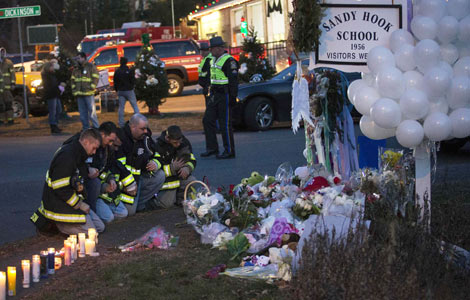
The troubling thought is Malaysian citizen Mohd Noor Fikrie Abd Kahar who was shot dead in Davao, Philippines last Friday, may be just one of many wannabe martyrs.
The number of home-grown terrorists created through the social media is anybody’s guess but the reality is there are scores of vulnerable young people in Malaysia who are ripe for radicalisation.
Terror groups can easily befriend them and empathise with their grievances and disenchantment. Once hooked, they are slowly pulled into the militant cause through indoctrination.
There is no longer any need for personal physical interaction like in the past.
Today’s terrorists are lured into the ranks through Twitter, Facebook, YouTube, Dropbox and such.
Emotion-stirring videos and other propaganda materials are enough to persuade these susceptible people to join the militant networks and be willing to sacrifice their lives.
Fikrie, who used the moniker of “goodjinn” in a religious talk forum hosted by local web portal CariGold.com, for example, had posted 2,438 messages about fighting Islam’s enemies since 2006.
Among the latest was this: “Death is a friend. It follows you even when you have forgotten about it. Get to know it before it comes to you.”
As one intelligence expert described it, he was a classic example of a self-radicalised young man, programmed into becoming a terrorist via the social media.
What can the authorities do about this? For one thing, they should not be in denial that this is happening or regard the latest violent death as yet another isolated case.
One rehabilitated former Jemaah Islamiyah (JI) member, who spoke to The Starrecently, said Facebook had become the most popular means of luring new members.
The former militant confirmed that when they were ready, they were sent for training as fighters.
It is no secret among counter terrorism experts that Malaysia is one of the countries favoured for recruiting new followers, even as far back as during the Afghanistan war against the Soviet Union between 1979 and 1989.
Today’s tech-savvy terrorists are not exactly running riot on the Internet but it is a fact of life that they are very much there and using all the tools and freedom it offers to enlist new followers.
And it is unlikely that things would change soon through any form of global policing of the web.
The United Nations’ recent plea for better surveillance of Internet users to help to investigate and prosecute terrorists has only resulted in cynical responses from advocates of Internet freedom across the world.
Its 148-page report titled “Use of the Internet for Terrorist Purposes” warned that terrorists were using social networks and sharing sites for posting propaganda for recruitment, radicalisation, training, financing and executing physical acts of terrorism.
The report by the United Nations Office on Drugs and Crime (UNODC) urged governments to use the tools available in the Internet to prevent and deter acts of terrorism and engage potential recruits in “constructive dialogues” to tackle radicalisation.
Although it noted that overly stringent measures like tighter controls on ISPs to block content would impinge on privacy and human rights, it still drew much ridicule and scorn.
It was seen as yet another attempt to compel ISPs to spy on users, collect the data and use it for keeping people under surveillance for reasons beyond terrorist threats.
More recently on Friday, the UN’s International Telecommunications Union treaty, signed in Dubai by 89 out of 144 countries, including Malaysia, revealed the world’s deep divide when it comes to the question of imposing controls on cyberspace.
Western nations, including the US, Britain and much of Europe, refused to sign the pact on the grounds that it gave too much power to UN, in spite of the ITU’s insistence that regulating the Internet was not its key issue.
But our immediate worry should be over wannabe terrorists being recruited online, especially when one of the two most senior JI leaders in the Philippines are Malaysian Zulkifli bin Hir, better known as Marwan, who has a US$5 million (15 million ringgit) bounty on his head.
The other is Singaporean Mohammad Abdullah Ali, known as Muawi-yah.
Fikrie, a divorced father of four, was believed to have been in close contact with them before leaving for his fatal mission to Davao.
He went with his Filipina wife Annabelle Nieva Lee, a Muslim convert, carrying an improvised explosive device in a backpack.
Lee, who is now in custody claimed that they had planned to bomb a bus for extortion, but Davao police suspect that a church may have been the target as two of five major bomb attacks in the city had been on churches.
According to Philippines’ news site Rappler.com, Marwan and Mua-yiyah were now in Butig, near the Moro Islamic Liberation Front’s (MILF) Bushra camp.
The network cited Filipino intelligence sources as saying that they were on the move with two pregnant Filipinas, believed to be their wives.
The Philippines’ security forces are reportedly treading very carefully because the area is under the control of MILF which is currently holding peace talks with the government through a deal brokered by Malaysia.
Meanwhile, the pertinent question for our intelligence experts is: How many other young men have the JI and other militant groups succeeded in convincing to become terrorists and bomb makers?
M. Veera Pandiyan is associate editor, The Star.







